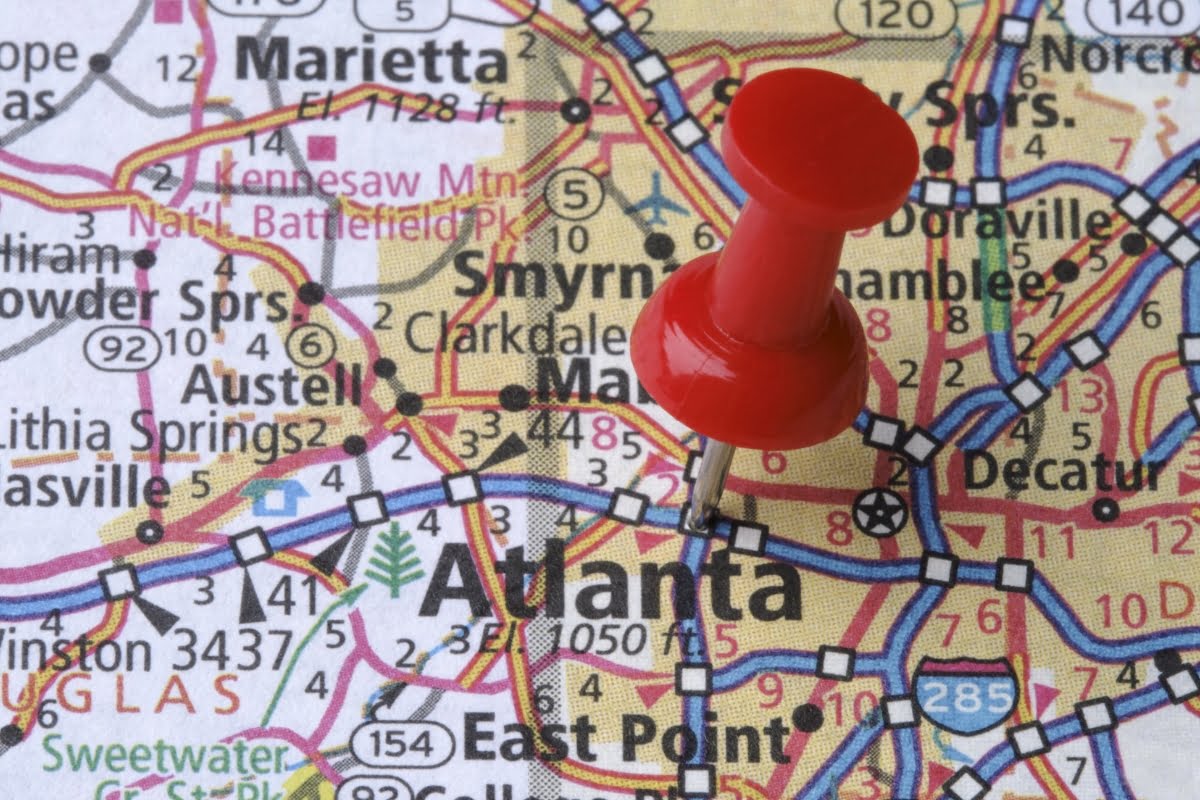Do you want your Atlanta garden to be the talk of the town? Have you been looking for ways to transform your yard into an oasis with vibrant colors and lush foliage? Look no further, because uncovering your garden’s true potential has never been easier.
Atlanta’s climate is perfect for growing a wide variety of plants but it’s important to understand the city’s planting zones in order to ensure the success of your garden. These zones are determined by the USDA Hardiness Zone Map and define the minimum winter temperatures for the region. With this information in hand, it’s easier to pick the perfect plants for your garden and know what to expect year-round.
This blog post aims to provide gardeners and aspiring green thumbs with information about Atlanta’s planting zones and how to utilize them best to maximize the potential of a garden in the region. Get ready to unearth all the secrets of your garden’s potential and cultivate the oasis of your dreams!
Understanding Atlanta Georgia Planting Zones: What You Need to Know
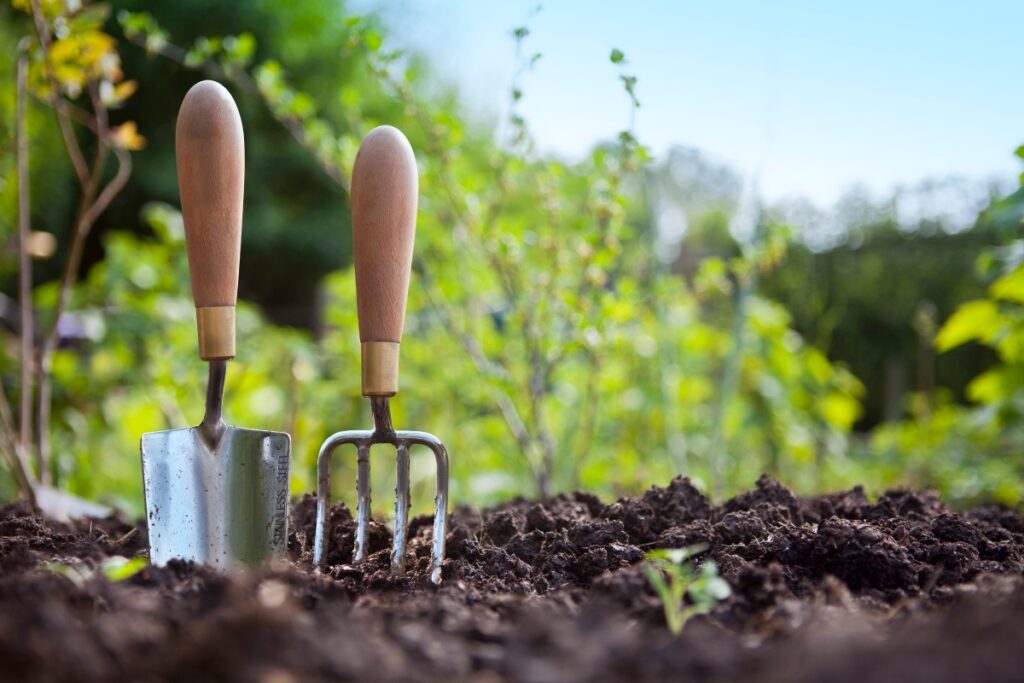
Growing plants in your garden can be a fun and rewarding experience, but to make sure you are successful, you must first understand the zones of your area. Planting zones give you an indication of what climates are best suited for certain plants. Understanding planting zones is an essential part of gardening, especially if you live in the Atlanta Georgia area.
The USDA (United States Department of Agriculture) Plant Hardiness Zone Map is the standard resource for understanding planting zones. This map is divided into 13 zones, each of which is 10°F warmer (or colder) in an average winter than the adjacent zone.
According to the map, Atlanta falls within Zone 7b, which is determined based on the average annual minimum winter temperature. In this zone, plants have the ability to withstand temperatures as low as 5°F.
Knowing which planting zone you live in is important when deciding what type of plants to grow. For example, if you grow a plant that cannot tolerate the temperatures of Zone 7b, it may not survive. Before planting, it is important to make sure that the plant you are interested in can tolerate the temperatures of your area.
In addition to understanding your planting zone, you should also be aware of your local frost dates. Frost dates in Atlanta Georgia range from mid-November to mid-March. This means that any plants planted after mid-November will need protection from frost. It is important to be mindful of frost dates when choosing plants for your garden- some plants don’t tolerate frost well and will need to be planted earlier or taken indoors during the winter.
Gardening Tips for Atlanta’s Climate
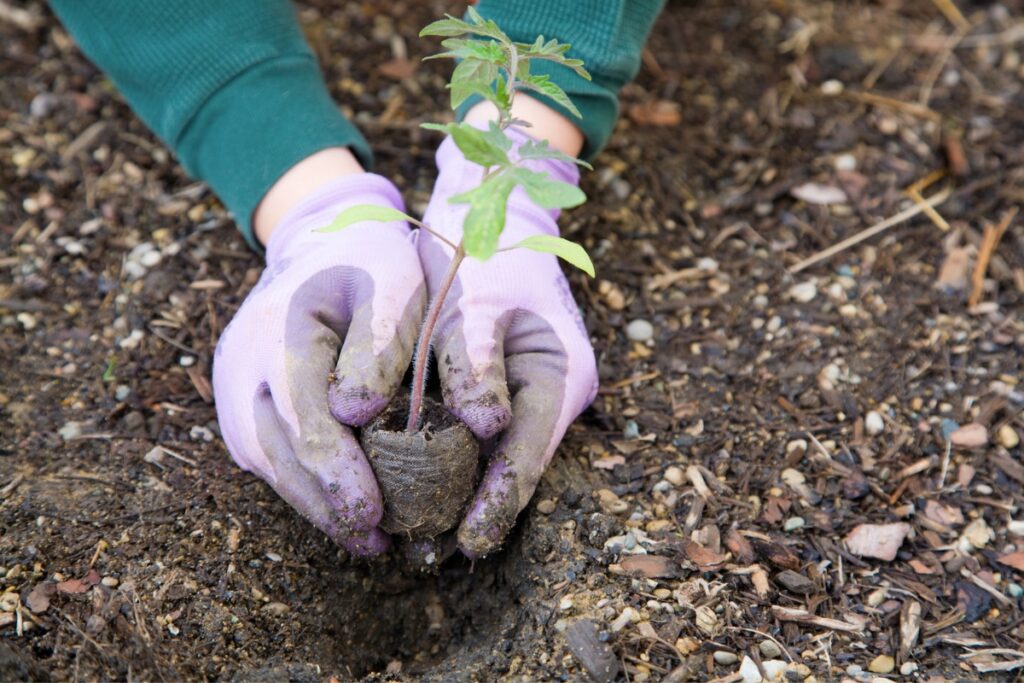
To ensure your garden reaches its maximum potential, it is important to become familiar with the planting zone and the best practices for gardening in it.
When planning your garden, you should consider the temperatures of the Atlanta climate. The city experiences a humid subtropical climate characterized by hot, humid summers and mild winters.
Temperatures during the summer months can reach as high as 95°F, while in the winter months, temperatures can dip down to a chillier 22°F. It is important to keep this in mind when selecting plants for your garden as some may not be able to withstand the extreme temperatures.
When selecting plants for your Atlanta garden, you should also keep in mind the soil type and drainage. The soil in the area is mostly clay-based and can be difficult to work with, but there are ways to improve it. Amending the soil with compost or other organic matter will help to improve its structure and drainage.
Additionally, it is important to water plants deeply and regularly. Atlanta is known for having extremely dry summers, so making sure to keep your plants well watered is key to a successful garden.
Finally, it is important to know when the best planting times for the area are. In Atlanta, the best time to plant is usually during the spring, when the temperatures are mild and the soil is still damp from the winter rains.
Planting in the winter months is not recommended because the soil will be too cold and dry for the plants to take root. It is also important to be aware of the last frost date in the area, which is in mid-April. Anything planted after this time should be protected from frost damage.
Choosing the Right Plants for Your Garden in Atlanta’s Planting Zones
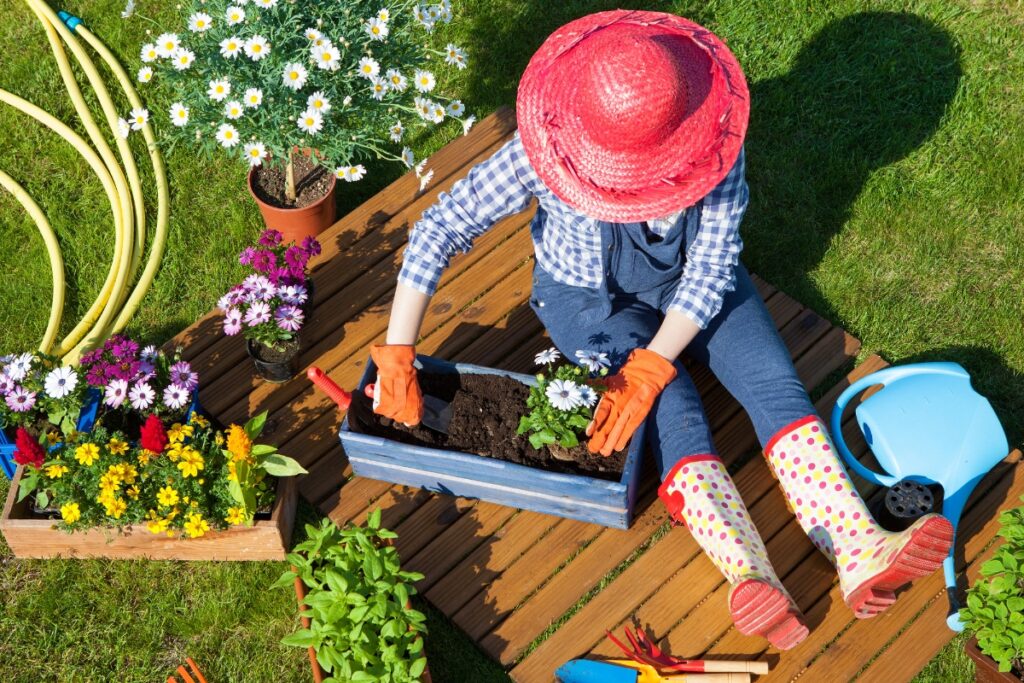
Annuals, perennials, shrubs, trees, and vegetables are all suitable for Atlanta’s Planting Zones. When selecting a plant for your garden, consider the soil type and the amount of sunlight the area receives. Some plants require more sun than others, while some can tolerate shade. Other plants require more water and some need dry soil.
When choosing plants for Atlanta’s Planting Zones, make sure to select those that are native to the area. Native plants are beneficial to the local environment and less likely to become invasive. They require less water and are more tolerant of the local soil conditions. Some popular native plants for Atlanta’s Planting Zones include azalea, black-eyed Susan, coreopsis, dogwood, and oakleaf hydrangea.
Shrubs are a great way to add color and texture to a garden. Some of the best shrubs to consider for Atlanta’s Planting Zones include boxwood, inkberry, nandina, and holly. These shrubs are drought tolerant and can handle the warm temperatures of the area.
Trees are also a great way to add structure to a garden. Some of the best trees to consider for Atlanta’s Planting Zones include cypress, dogwood, magnolia, red maple, and sweetgum. These trees are not only beautiful, but they also provide shade and protection from the elements.
Annuals and perennials are great for adding color to a garden. There are many varieties of annuals and perennials that can thrive in Atlanta’s Planting Zones. Some of the best choices for the area include begonias, impatiens, petunias, and snapdragons. These plants will provide beautiful blooms throughout the year and can brighten up any garden.
Vegetables are a great way to add texture and color to a garden. There are many vegetable varieties that can be grown in Atlanta’s Planting Zones. Some of the best vegetables to consider for the area include beans, broccoli, cauliflower, lettuce, and tomatoes. These vegetables will provide a delicious harvest for your garden.
Maximizing Your Garden’s Potential with Seasonal Planting
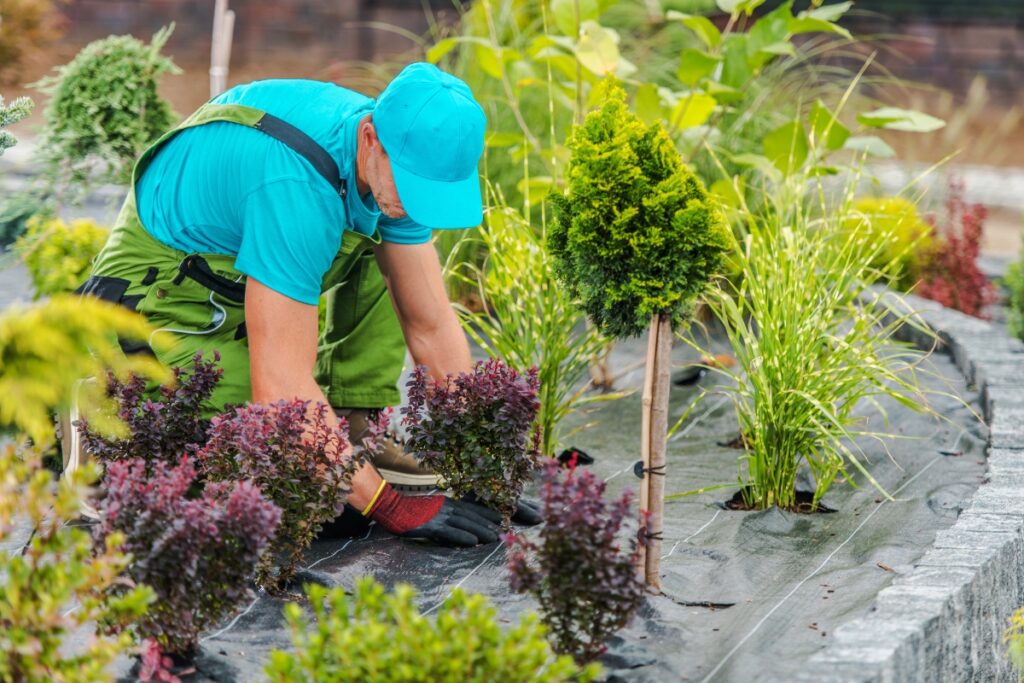
Seasonal planting is key for a successful garden in Atlanta Georgia. Planting in the correct season will ensure that your plants get the optimal amount of sun, warmth, and nutrients they need to prosper.
Vegetables like tomatoes, peppers, and squash should be planted in the early spring, while cool weather crops like potatoes, lettuce, and spinach should be planted in the late summer. Research the best varieties of plants that thrive in the Atlanta Georgia area, as well as when and how to plant them for the best results.
When it comes to soil preparation, paying attention to the pH level, nutrient levels, and moisture content of the soil is essential.
Knowing the pH level of your soil helps you determine which plants will thrive in your garden, and also helps you make decisions about which amendments to use to improve the soil conditions.
Additionally, the nutrient levels of your soil will help you decide what fertilizers to add to ensure your plants have the correct amount of nutrients. Lastly, knowing the moisture content of the soil helps you determine how frequently you should be watering your plants for optimal growth.
Finally, crop rotation helps to keep your soil healthy and ensure that your garden is producing a diverse selection of vegetables. Crop rotation helps to reduce pest and disease pressure, and also replenishes the soil’s nutrients. Planting vegetables in different areas of the garden each season helps to prevent the buildup of insects and diseases in the soil. Additionally, rotating crops helps to prevent the depletion of nutrients in the soil, ensuring that your plants have the necessary nutrients to grow.
Overcoming Gardening Challenges in Atlanta’s Planting Zones
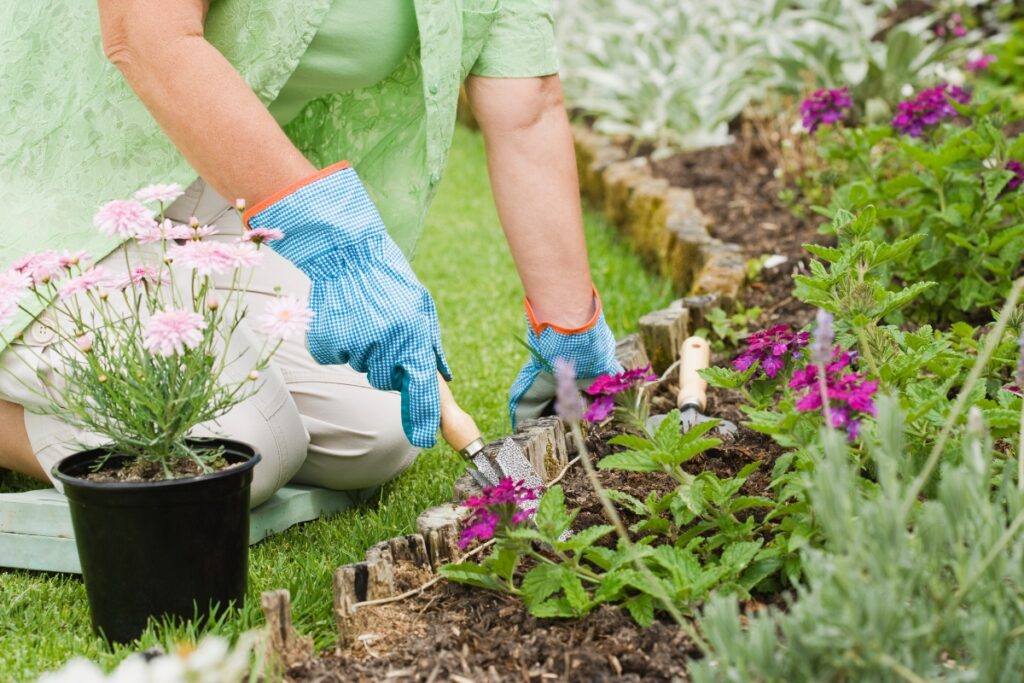
Gardening in Atlanta, Georgia can be a challenging experience. With its humid summers and mild but unpredictable winters, the weather can often be unpredictable. Fortunately, being aware of the area’s planting zone can help you plan your garden and ensure that your plants are able to thrive.
The planting zone in Atlanta, Georgia is Zone 7b. This zone is one of the most diverse in the United States, and encompasses a wide range of temperatures. During summer months, the average temperature is around 86 degrees Fahrenheit, while in the winter it can dip down to around 20 degrees Fahrenheit.
Knowing the planting zone in Atlanta is especially important because it helps you determine what plants will thrive in the area’s unique climate. Plants that grow well in the warmer climate of Zone 7b include citrus trees, figs, and some varieties of roses. Plants that prefer cooler weather, such as most evergreens, will not do as well in this zone.
It is also important to be aware of the soil type in your area. Sandy soil is most common throughout Atlanta, and the clay content of the soil varies from zone to zone. If you have sandy soil in your garden, you will need to make sure to amend it with compost and mulch to help retain moisture. Clay soil can become hard and compacted over time, so it is important to add organic matter to help loosen it up and make it easier for the roots of your plants to grow.
Another important factor to consider when gardening in Atlanta is the amount of rainfall the area receives. Heavy rains can quickly overwhelm a garden, so it is important to plan for drainage. Raised beds or planter boxes can help keep the soil from becoming waterlogged, while rain barrels or cisterns can be used to collect rainwater for use in the garden.
Finally, it is important to be aware of the pests and diseases that can affect plants in Atlanta’s Zone 7b. The humid climate of the region can create the perfect conditions for certain pests and diseases to thrive, so it is important to be aware of the signs of these problems and take action as soon as possible.
By keeping these tips in mind, you can create a successful garden in Atlanta’s Zone 7b. Being aware of the climate, soil type, and potential issues can help you create a garden that is both beautiful and productive. With the right knowledge and care, you can make the most of your gardening experience and unearth the potential of your garden.
Conclusion: Making the Most of Your Garden
Making the most of your garden in Atlanta, Georgia requires understanding your regional planting zone. From the soil type to the annual average temperatures, gardeners must be familiar with the climate to be successful.
Given the mild climate in Atlanta, gardeners can enjoy planting and gardening all year round. By understanding their regional planting zone, selecting the appropriate soil, and researching the best plants for their area, gardeners in Atlanta can make the most of their garden.
For a flourishing garden project in Atlanta, Georgia, consider incorporating a mix of both perennial plants and flowers that come back every year. Embracing a wide variety of greenery, colors, and blooms can elevate your landscape design, and Glover Landscapes is your trusted partner to help bring this vision to life.
With our expertise and experience, we can guide you in choosing the perfect combination of perennial plants and flowers that thrive in Georgia’s climate. By incorporating a diverse range of vegetation, your garden can become a lively and ever-changing oasis that delights you throughout the seasons.
The beauty of Atlanta’s planting zones lies in the vast selection of plants that flourish here. Whether you’re interested in vibrant flowers, lush foliage, or a mix of both, we can help you create a landscape that dazzles year after year.
Our landscaping services follow a comprehensive approach, ensuring that your garden is not only visually appealing but also sustainable and easy to maintain. From selecting the right plants to planning the layout, our team ensures that your garden remains vibrant and inviting with minimal effort.
So, if you’re eager to create a garden that showcases both perennial plants and flowers, reach out to Glover Landscapes today for a free landscaping services estimate, or call us at (404) 510-6437. Let us assist you in crafting a lush and dynamic landscape that enchants you with its beauty and vitality throughout the changing seasons.
